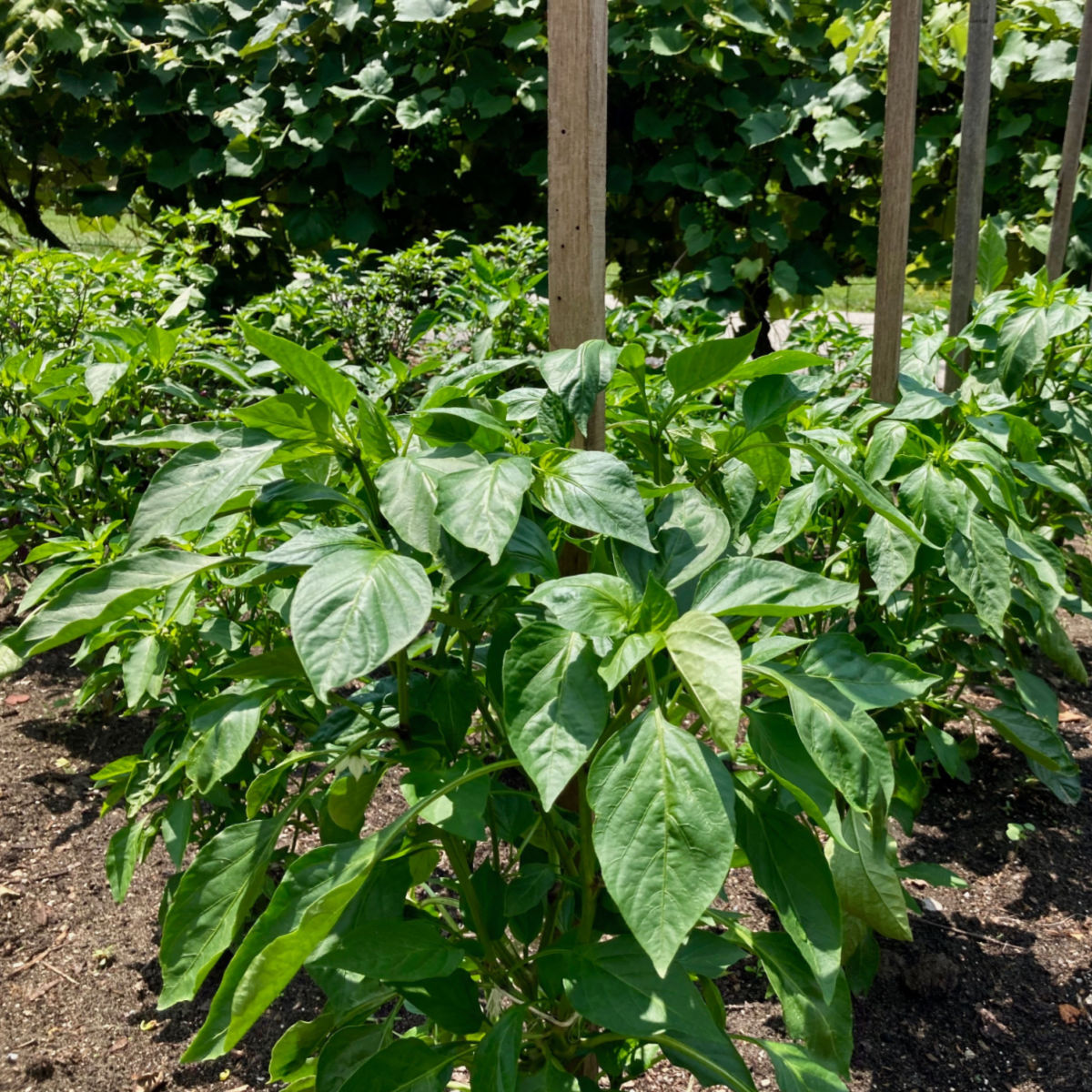Organic Vs. Synthetic Fertilizers: Which Is Best for Supporting Healthy Pepper Plants?
In the realm of nurturing healthy pepper plants, the choice in between organic and synthetic plant foods stands as a pivotal choice with far-ranging implications. While both options goal to offer necessary nutrients to sustain plant development, the subtleties of their influence on the dirt, plant health, and the environment spark a discussion that mirrors throughout the horticulture neighborhood. Comprehending the distinctive advantages and potential pitfalls of each fertilizer type is essential for pepper cultivators looking for to maximize their returns while keeping an eco-conscious and sustainable technique.
Benefits of Organic Fertilizers
Organic plant foods provide a sustainable and environmentally-friendly approach to nourishing pepper plants, providing necessary nutrients without making use of artificial chemicals. These all-natural plant foods are derived from natural resources such as compost, manure, bone dish, and algae, advertising dirt health and wellness and biodiversity. Unlike synthetic fertilizers, organic choices release nutrients gradually, ensuring a balanced and steady supply for pepper plants to prosper.
One considerable benefit of organic plant foods is their ability to enhance dirt framework and water retention. By boosting dirt health, natural fertilizers advertise advantageous microbial activity, which helps in nutrient uptake by pepper plants. Furthermore, organic plant foods lower the threat of chemical run-off, safeguarding water resources from contamination and securing the setting.
Moreover, organic fertilizers contribute to lasting dirt fertility by advertising the development of helpful dirt microorganisms. These microorganisms assist break down organic matter, launching nutrients in a form that is conveniently obtainable to pepper plants. best fertilizers for peppers. By fostering a healthy soil community, organic fertilizers sustain lasting pepper growing practices that benefit both plants and the setting
Drawbacks of Synthetic Fertilizers
Synthetic plant foods, in comparison to their natural equivalents, posture numerous downsides when utilized to nurture pepper plants, influencing both plant health and wellness and ecological sustainability. One significant drawback of synthetic fertilizers is their tendency to leach nutrients from the soil quickly.
Additionally, the overuse of synthetic plant foods can add to water pollution. Excess fertilizers not soaked up by plants can wash away right into water bodies, leading to eutrophication, where algae blooms diminish oxygen levels in the water, damaging marine life. Synthetic fertilizers are usually obtained from non-renewable resources, such as fossil fuels, contributing to carbon exhausts and environmental degradation during their manufacturing.
Nutrient Absorption Contrast
When contrasting natural and synthetic plant foods in terms of nutrient absorption, organic plant foods have the advantage of offering a more well balanced and slow-release source of nutrients. Organic fertilizers include a selection of macro and micronutrients that are not just advantageous for the plants however also advertise healthy and balanced soil microbial task, which assists in nutrient uptake.
Additionally, organic fertilizers improve dirt structure and water retention capability, enabling pepper plants to accessibility nutrients more successfully. This better dirt high quality promotes root growth, allowing far better nutrient absorption. Artificial plant foods, although at first increasing plant growth because of their high nutrient focus, may impede long-term nutrient absorption by degrading dirt health and wellness gradually.
Environmental Influence Considerations

On the other hand, artificial plant foods, although typically more focused and quickly readily available to plants, can Going Here have damaging effects on the environment otherwise applied effectively (best fertilizers for peppers). Their production needs high energy inputs, causing greenhouse gas exhausts and adding to climate change. Moreover, the drainage of more excess synthetic fertilizers can contaminate water sources, leading to eutrophication and damaging water ecological communities.
Ideal Fertilizer Practices for Peppers
When feeding pepper plants, maximizing nutrient uptake and minimizing ecological effect are essential considerations. To accomplish this, it is important to follow best plant food techniques customized to the details requirements of pepper plants. One crucial technique is to carry out a dirt test before applying any fertilizers. This test can figure out the pH degree of the dirt and identify any kind of nutrient deficiencies, leading you in selecting one of the most appropriate plant food formulation.
Another vital practice is to fertilize pepper plants at the correct time. Generally, peppers profit from getting plant food at growing and after that again when they begin to blossom. Over-fertilizing can lead to vitamins and mineral discrepancies and damage the plants, so it is crucial to comply with suggested application prices.
In addition, choosing a balanced plant food with an NPK ratio that suits pepper plants' needs is essential. Eventually, incorporating organic and artificial fertilizers carefully can assist support healthy pepper plants while decreasing environmental impact.
Verdict

Organic plant foods supply a sustainable and environmentally-friendly method to beneficial pepper plants, important source providing essential nutrients without the use of artificial chemicals. Unlike synthetic fertilizers, natural choices launch nutrients gradually, making certain a stable and well balanced supply for pepper plants to prosper.
Synthetic fertilizers, in comparison to their organic counterparts, posture various downsides when used to nourish pepper plants, impacting both plant health and environmental sustainability. When contrasting synthetic and organic plant foods in terms of nutrient absorption, organic fertilizers have the advantage of supplying a much more balanced and slow-release resource of nutrients.In addition, organic plant foods enhance dirt framework and water retention ability, enabling pepper plants to accessibility nutrients more successfully.